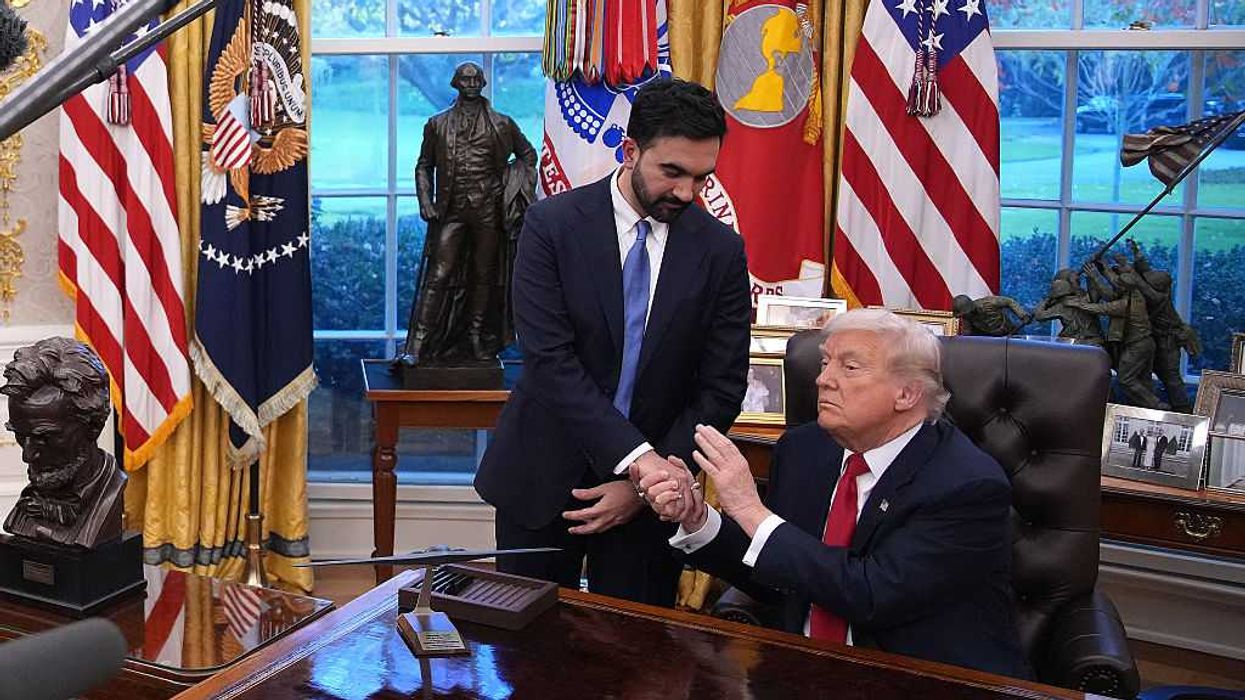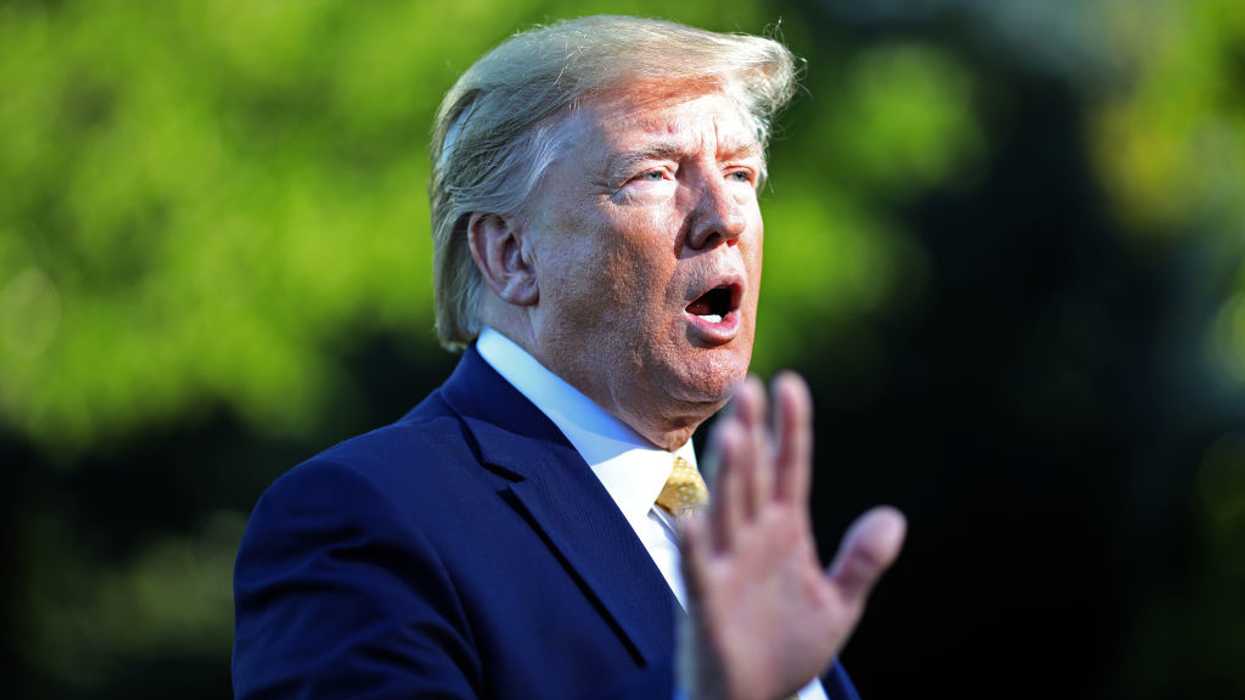Yesterday’s meeting between Donald Trump and New York City's Mayor-elect, Zohran Mamdani, was marked by an unexpected cordiality. Trump praised Mamdani’s “passion for his community” and called him “a very energetic young man with strong ideas,” while Mamdani, in turn, described Trump as “gracious” and “surprisingly open to dialogue.” The exchange was strikingly civil, even warm — a sharp departure from the months of hostility that had defined their relationship in the public eye.
That warmth stood in stark contrast to the bitter words exchanged before and after Mamdani’s election. Trump had dismissed him as a “radical socialist who wants to destroy America,” while Mamdani blasted Trump as “a corrupt demagogue who thrives on division.” Republican Senator Rick Scott piled on, branding Mamdani a “literal communist” and predicting Trump would “school” him at the White House. Representative Elise Stefanik went further, labeling him a “jihadist” during her gubernatorial campaign and, even after Trump’s praise, insisting that “if he walks like a jihadist… he’s a jihadist.” For Republicans who had invested heavily in demonizing Mamdani, Trump’s embrace left allies fuming and fractured, caught between loyalty to their leader and the hardline attacks they had once championed.
Surprisingly, Scott has not issued any follow-up statement after Trump’s conciliatory tone. In stark contrast, Stefanik doubled down, saying after the meeting, “We’ll have to agree to disagree on this one. If he walks like a jihadist… he’s a jihadist.” Conservative activist Laura Loomer blasted Trump’s friendliness as “normalizing communism” and warned it could hurt GOP messaging in the 2026 midterms.
Trump’s cordiality toward Mamdani highlights a potential broader backlash among hardliners who saw his tone as a betrayal and a political liability heading into the fall elections. At the very least, Trump’s praise has fractured GOP messaging, with some Republicans openly disagreeing with him and warning of electoral fallout. The divide could come down to conflict between hardliners — who insist Mamdani is an existential threat and believe Trump’s friendliness risks alienating the base — and pragmatists, who argue that a softer tone could help peel away progressive critics and project statesmanship.
Of course, the strategic risks are many. If Republicans continue to send two conflicting messages — some demonizing Mamdani, others echoing Trump’s friendliness — the public will be left confused. The likely result is that the election of an ultra-liberal mayor in New York will no longer allow Republicans to use Mamdani as a foil to rally their supporters against Democrats.
This split underscores a deeper GOP challenge: Trump’s unpredictability regularly creates contradictions that throw Republicans off balance, undermining party discipline and exposing fractures that could widen as the 2026 campaign intensifies.
Polling consistently shows that Trump’s greatest vulnerability heading into 2026 is the public’s frustration with inflation and affordability — the very issues that were at the heart of Mamdani’s campaign. By striking a conciliatory tone with Mamdani, Trump may be attempting to reposition himself on economic concerns before they damage Republicans more broadly. In praising Mamdani’s focus on community and cost-of-living struggles, Trump could be signaling that he wants to co‑opt the affordability narrative, turning a potential Democratic strength into a bipartisan talking point under his banner.
Democratic reactions since the meeting have been equally telling. Many Democrats expressed surprise at Trump’s conciliatory tone, with some framing it as a rare moment of bipartisanship and others dismissing it as political theater. Progressive allies of Mamdani hailed the exchange as validation of his growing influence. At the same time, more centrist Democrats warned that Trump’s praise could be a tactical move to soften his image without changing his policies. In either case, Democrats appear eager to exploit the GOP’s internal divisions, casting Trump’s embrace of Mamdani as evidence of a party in disarray.
In trying to blunt Mamdani’s affordability message, Trump may have opened a new problem with voters worried about the cost of supporting a party that shifts with the wind. His gesture of magnanimity now risks being seen not as statesmanship, but as the emblem of a party at war with itself — led by a president whose opportunism is laid bare.
David Nevins is the publisher of The Fulcrum and co-founder and board chairman of the Bridge Alliance Education Fund.




















Eric Trump, the newly appointed ALT5 board director of World Liberty Financial, walks outside of the NASDAQ in Times Square as they mark the $1.5- billion partnership between World Liberty Financial and ALT5 Sigma with the ringing of the NASDAQ opening bell, on Aug. 13, 2025, in New York City.
Why does the Trump family always get a pass?
Deputy Attorney General Todd Blanche joined ABC’s “This Week” on Sunday to defend or explain a lot of controversies for the Trump administration: the Epstein files release, the events in Minneapolis, etc. He was also asked about possible conflicts of interest between President Trump’s family business and his job. Specifically, Blanche was asked about a very sketchy deal Trump’s son Eric signed with the UAE’s national security adviser, Sheikh Tahnoon.
Shortly before Trump was inaugurated in early 2025, Tahnoon invested $500 million in the Trump-owned World Liberty, a then newly launched cryptocurrency outfit. A few months later, UAE was granted permission to purchase sensitive American AI chips. According to the Wall Street Journal, which broke the story, “the deal marks something unprecedented in American politics: a foreign government official taking a major ownership stake in an incoming U.S. president’s company.”
“How do you respond to those who say this is a serious conflict of interest?” ABC host George Stephanopoulos asked.
“I love it when these papers talk about something being unprecedented or never happening before,” Blanche replied, “as if the Biden family and the Biden administration didn’t do exactly the same thing, and they were just in office.”
Blanche went on to boast about how the president is utterly transparent regarding his questionable business practices: “I don’t have a comment on it beyond Trump has been completely transparent when his family travels for business reasons. They don’t do so in secret. We don’t learn about it when we find a laptop a few years later. We learn about it when it’s happening.”
Sadly, Stephanopoulos didn’t offer the obvious response, which may have gone something like this: “OK, but the president and countless leading Republicans insisted that President Biden was the head of what they dubbed ‘the Biden Crime family’ and insisted his business dealings were corrupt, and indeed that his corruption merited impeachment. So how is being ‘transparent’ about similar corruption a defense?”
Now, I should be clear that I do think the Biden family’s business dealings were corrupt, whether or not laws were broken. Others disagree. I also think Trump’s business dealings appear to be worse in many ways than even what Biden was alleged to have done. But none of that is relevant. The standard set by Trump and Republicans is the relevant political standard, and by the deputy attorney general’s own account, the Trump administration is doing “exactly the same thing,” just more openly.
Since when is being more transparent about wrongdoing a defense? Try telling a cop or judge, “Yes, I robbed that bank. I’ve been completely transparent about that. So, what’s the big deal?”
This is just a small example of the broader dysfunction in the way we talk about politics.
Americans have a special hatred for hypocrisy. I think it goes back to the founding era. As Alexis de Tocqueville observed in “Democracy In America,” the old world had a different way of dealing with the moral shortcomings of leaders. Rank had its privileges. Nobles, never mind kings, were entitled to behave in ways that were forbidden to the little people.
In America, titles of nobility were banned in the Constitution and in our democratic culture. In a society built on notions of equality (the obvious exceptions of Black people, women, Native Americans notwithstanding) no one has access to special carve-outs or exemptions as to what is right and wrong. Claiming them, particularly in secret, feels like a betrayal against the whole idea of equality.
The problem in the modern era is that elites — of all ideological stripes — have violated that bargain. The result isn’t that we’ve abandoned any notion of right and wrong. Instead, by elevating hypocrisy to the greatest of sins, we end up weaponizing the principles, using them as a cudgel against the other side but not against our own.
Pick an issue: violent rhetoric by politicians, sexual misconduct, corruption and so on. With every revelation, almost immediately the debate becomes a riot of whataboutism. Team A says that Team B has no right to criticize because they did the same thing. Team B points out that Team A has switched positions. Everyone has a point. And everyone is missing the point.
Sure, hypocrisy is a moral failing, and partisan inconsistency is an intellectual one. But neither changes the objective facts. This is something you’re supposed to learn as a child: It doesn’t matter what everyone else is doing or saying, wrong is wrong. It’s also something lawyers like Mr. Blanche are supposed to know. Telling a judge that the hypocrisy of the prosecutor — or your client’s transparency — means your client did nothing wrong would earn you nothing but a laugh.
Jonah Goldberg is editor-in-chief of The Dispatch and the host of The Remnant podcast. His Twitter handle is @JonahDispatch.